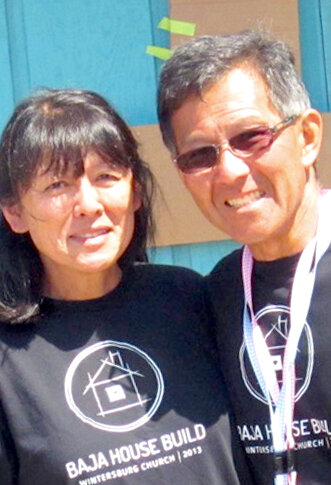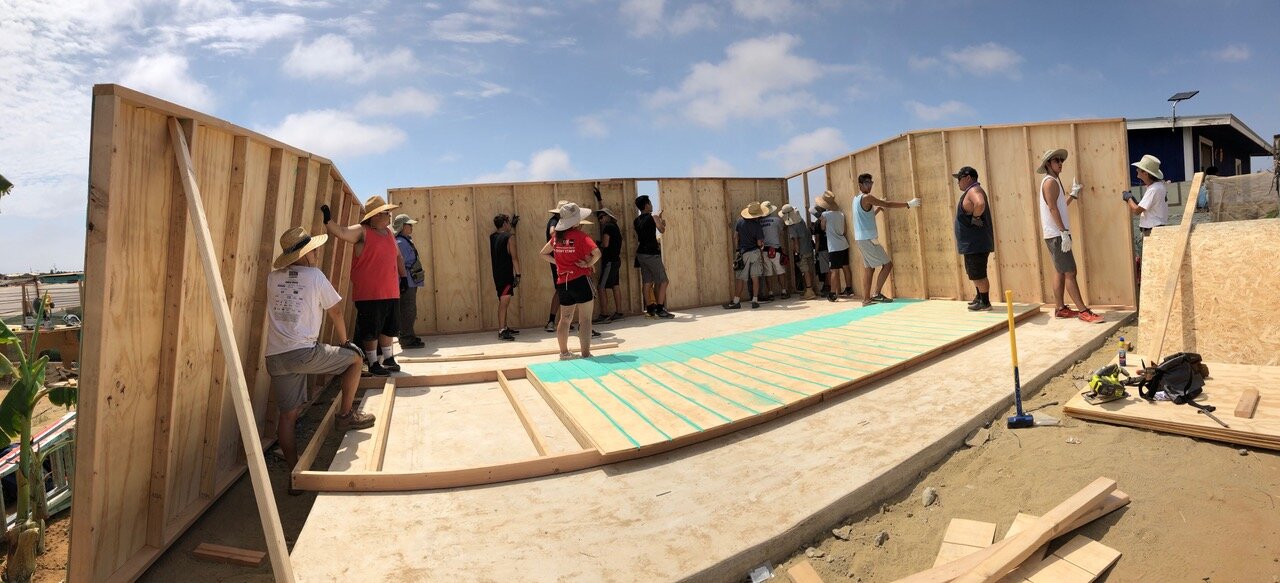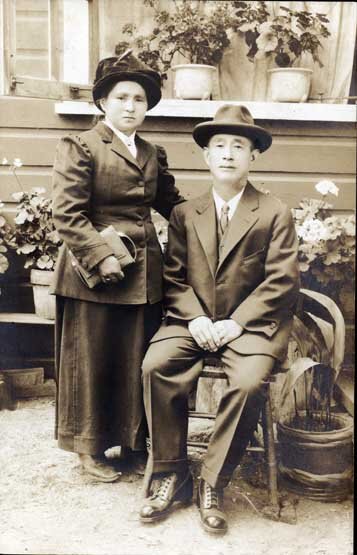Gerald and his wife, Kathy
Retiree Builds Homes, Creates Hope for Baja Families
By ELLEN ENDO
FULLERTON – At a time when the world can use as many heroes as it can find, a 65-year old Yonsei is demonstrating how one person can make a difference with fierce determination and a hammer.
Since 2005, Gerald Tanaka has been leading groups of volunteers on missions to Baja California, a section of Mexico known as the home of Tijuana, pristine beaches and tourism. It is also a district where families struggle to survive due to extreme poverty.
As part of the Wintersburg Presbyterian Church and its partner, International Disciples Training (IDT) , Tanaka has made multiple trips each year to Baja, overseeing the construction of permanent housing for needy families, many of whom were living in self-made shelters covered only by cardboard and plastic.
The first year, Tanaka recalls, “I took six guys to Baja.” The crew learned how to build a basic house with permanent walls and electricity. The following year, 45 people, mostly young men and women, joined the trip and took part in the construction. Since then, fifteen groups of about 40 people -- each mainly from Orange County and the South Bay -- have made the humanitarian trek to Baja.
They not only supplied construction materials and tools but also furniture, blankets, bedding, shoes and socks. In addition, they brought sewing machines and barber tools, which were used to teach the Baja folks how to make clothes for themselves and for their children as well as cosmetology skills. A fashion show of traditional Mexican celebration dresses featured the work of the sewing students.
Shortly after returning from Baja earlier this year, “the world exploded,” Tanaka says as he describes how the coronavirus crisis has put a stop to the work, at least for now.
When asked what drives him to continue his crusade, Tanaka quips, “It’s in my DNA.” He reflects on his parents and grandparents who instilled in him their values and work ethic.
Born in Chicago and raised in Gardena, Tanaka spent summers working on his grandparents’ farm near Vancouver, Canada. “I used to push the boundaries…because I didn't like it, picking berries was back breaking work” he says of his youth. “While my friends (in Southern California) went to Disneyland, I was (living like) Tom Sawyer or Huckleberry Finn,” digging for clams, gathering crabs and fishing for salmon.
At the same time, Tanaka also learned how his grandparents struggled against racial discrimination and hardship before, during and after World War II. His grandmother, Kimiko Okano, was the first Japanese Canadian Nisei to be born in Steveston, a suburb of Richmond in Vancouver, in 1904. His grandfather, Katsuyori Murakami, immigrated to Canada and married Kimiko.
Being from an affluent family in Japan, Katsuyori was unaccustomed to farm work, but the couple eventually expanded their farm to 17 acres. They had five children.
WWII ignited anti-Japanese sentiment throughout Canada just as it did in the United States, but the repercussions were more severe. Katsuyori was arrested after the Pearl Harbor attack and sent to a labor camp.
Kimiko and her children were confined to an animal barn and eventually wound up in Greenwood, Canada, where all six stayed in a small cubicle in a bunkhouse. The family was required to spend what little they were able to retain to pay for their own incarceration.
January 1920. The Okano family farm. All produce shipped to Vancouver and Victoria
Wartime restrictions were lifted in April 1949, four years after the end of the war. Despite persistent racism, Katsuyori and Kimiko were able to create a new farm on Salt Spring Island, located between Vancouver and the British Columbia mainland. Katsuyori passed away in 1988. Kimiko, who rose to prominence in her hometown of Salt Spring, was featured in a 13-part documentary. She passed away in 1997.
Perhaps inspired by his grandparents’ story of struggle and survival, Tanaka struck out on his own at a young age. “It was difficult,” he admits, but knowing what his grandparents had gone through is what he believes kept him going.









